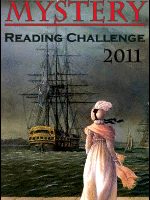The idea of marketing yourself as an author can be understandably overwhelming, especially if you are in the early stages of your writing journey.
Aspiring authors may wonder what they can do to enhance their chances of making money from their future books. Recently published authors may question what they can do to increase their profile and book sales.
The answer to both of these conundrums is to look to authors who have made it big and see what we can learn from their approach to marketing.
Before we go any further, let me pre-empt and clear up one of the most common misconceptions about this topic. That is, the belief that “marketing is easy for authors who are already famous. They have an audience to market to”.
Let’s lay that one to rest straight away. I would go as far as saying that without exception the most successful authors put the time and effort into their marketing well before they were well-known.
Even if you are starting with an audience of one, it’s better than not starting at all. The sooner you can get a headstart on your marketing the better.
Across the board, successful authors took steps to connect with and give to their audience or ‘community’ early on.
Here are some other key marketing lessons we can learn from famous authors.
J.K. Rowling – Leverage Your World-Building
Let’s be honest, I could spend all day unpacking the genius that is J.K. Rowling but in this post, I’m going to focus on just one element of her marketing strategy.
The Harry Potter series came with in-built marketing opportunities, thanks to Rowling’s detailed world-building and fully fleshed-out characters.
Rowling continues to share character insights and tidbits about the series today through the site. Fans can join the Pottermore community for free and complete quizzes that will uncover your wizarding identity, Hogwarts House, Patronus and more.
Content from this site is also shared across social media platforms to continue to feed fans and enthusiasm for the Potter brand.
If you have gone to the trouble of creating rich characters and places, you should look for ways to leverage this knowledge.
This is particularly the case for fantasy writers who often go to extreme lengths for world-building, in terms of language, locations, magic and more.
Look for ways to share little snippets from your books and world on social media and your website that may not even appear in your written work. The more you share, the more real your world becomes and the more likely fans are to engage in it and invest in your work.
Know and Appreciate Your Fan-base
E.L. James – Fan Fiction
Fifty Shades of Grey is one of those books that when mentioned at a writer event is likely to spark a fierce debate about its artistic merit. I tried to read it and 80 pages in decided it wasn’t for me. However, no one can deny that there is obviously a market for this kind of fiction and I’m of the belief that those who don’t like it don’t need to stick their nose up at it.
I for one celebrate the fact that E.L. James wrote a book series that was highly successful (at one point it was said to be selling paperback copies faster than the Harry Potter series) and her fans LOVE it.
This brings me to the marketing lesson of knowing and appreciating your fan base, and E.L. James absolutely nailed that.
James promoted Fifty Shades of Grey in several ways before it went from relative self-published obscurity to a worldwide phenomenon.
It was originally fan fiction for the Twilight series where her episodic pieces soon gained a fan-base.
She nurtured and continually fed this community with regular content she knew her fans would love, until changing the names of the characters, and putting the book on her website.
James also gained grass-roots support by reaching out to relevant book bloggers.
A major part of her success was making her content accessible (and initially free via fan fiction) and nurturing her following.
Elizabeth Gilbert – Facebook Community
If you’re looking for an example of an author who understands her fanbase and how to create a Facebook community, go no further than Elizabeth Gilbert, author of Eat, Pray, Love and Big Magic.
Of all of her communication and social platforms, Gilbert appears to engage most on her . She tends to use Facebook as a mini-blogging platform with lengthy posts addressed to her community. Many of the posts start with the phrase, ‘Dear Ones’, where she speaks directly to each member of her community with honest,
insightful and heartfelt posts that are a signature of her brand.
The lesson here is, it doesn’t matter how or where you choose to develop your community, as long as you do make the effort to do so.
Understand your fans and speak directly to them, giving them the content they want.
Joanna Penn – The Self-publishing and Author Marketing Guru
In the self-publishing world, provides an authoritative and highly engaging voice for authors wanting to market themselves.
Author of Successful Self-Publishing: How to self-publish and market your book, Penn has the highly successful Creative Penn podcast and at , provides extensive resources and tips on how to market yourself.
Penn is an award-nominated, New York Times and USA Today bestselling author, so knows her stuff and is generous with her knowledge.
There is not enough room here to cover all of her marketing lessons but two quotes from Successful Self-Publishing encapsulates the core of her philosophy and what we all can learn from.
“Writing is about you. Publishing is about the book. Marketing is about the reader.”
“Branding is your promise to the reader. It’s the words, images, and emotions that surround your work and the way readers think of you.”
Scott Pape ‘The Barefoot Investor’ – Give Freely
When it comes to non-fiction in Australia, no one has reached the same heights of success in recent times as Scott Pape with The Barefoot Investor.
Pape’s book sold 250,000 copies in the first six months of its release and has topped Australia’s best-selling book lists month-on-end, ahead of non-fiction and fiction titles.
A lot of Pape’s success comes down to his branding nous and giving freely to the audience.
At his , you can access loads of free resources and content. Visitors to his site then have the option of purchasing his book or joining his membership program.
The idea of giving free stuff to visitors to your site (or via other channels) is that you are giving them a taster and reward for connecting with you. It provides a gateway and conversation starter to encourage them to buy your book, product or services.
The lesson here is to offer something for free such as blog articles or downloadable resources.
You should also include a call to action to sign-up for regular content such as a newsletter where you can promote your paid assets, and potentially convert prospects to sales.
You may also like to have a higher value item such as the first few pages of your book, a short story, or exclusive resources, on your site that can only be accessed by providing an email first.
Finally, make your paid products for sale and very visible on your site, preferably only one click away from your free content.
These are just a few lessons from famous authors and tips to get started with your marketing. What are you waiting for? Get started today!
To stay in the know about my writing projects and to receive regular writing tips and articles like this, .
I’m a Writer, Content Marketer and Storyteller. I love creating and curating content, strategies and resources that will make your day. I’m also publisher of small business news and resources site – InJust5.com, and am writing my first young adult fiction series.










